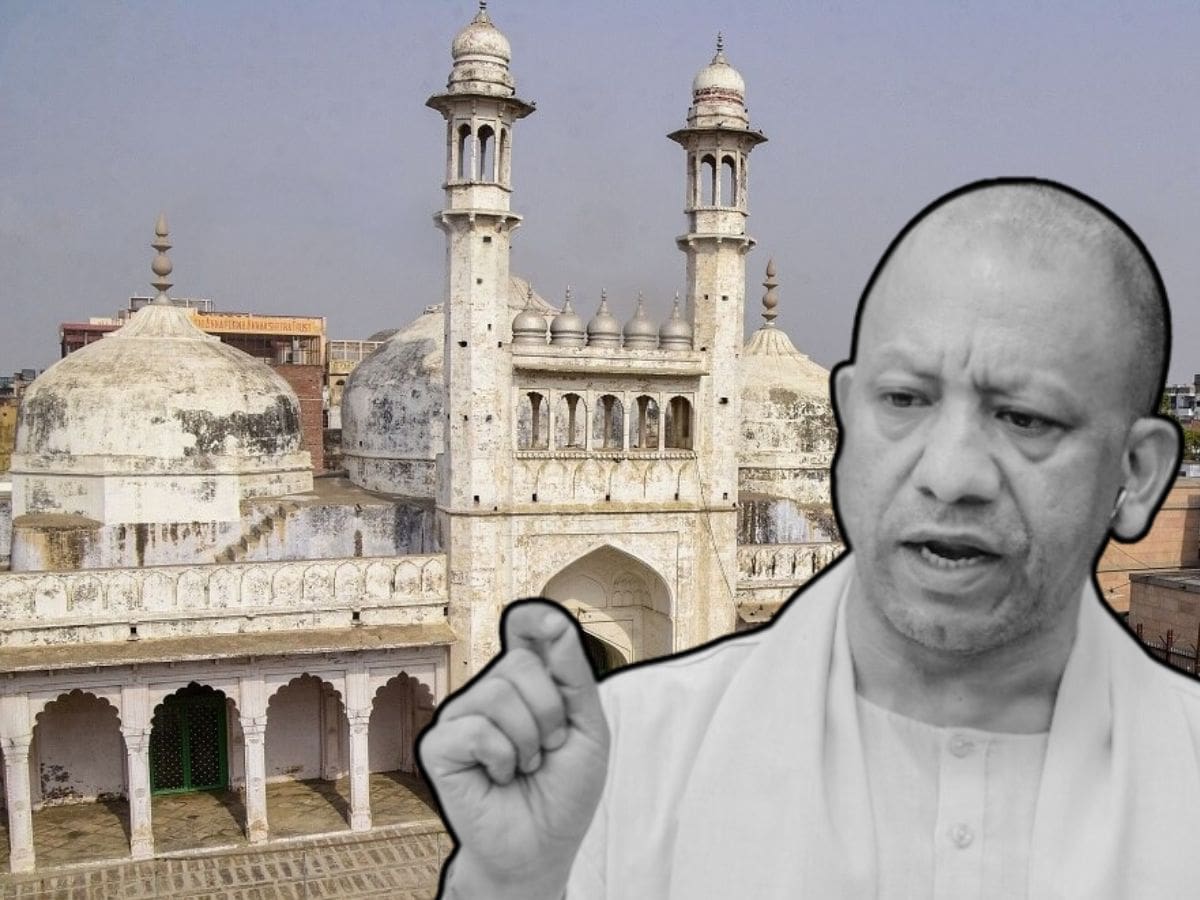
Gorakhpur: Uttar Pradesh Chief Minister Yogi Adityanath on Friday said the Gyanvapi well in Varanasi is not merely a structure but a “profound medium” for acquiring knowledge and a “symbol of Lord Vishwanath himself”.
He also said India is inherently a religious country, with its soul rooted in religion, specifically Sanatan Dharma, whose teachings serve as the foundation for social unity and national integration.
According to an official statement, Adityanath, while recalling an incident from Adi Shankar’s visit to Kashi for Gyan Sadhna, remarked, “the Gyanvapi well in Kashi is not merely a structure but a profound medium for acquiring knowledge and a symbol of Lord Vishwanath himself.”
He explained that during Adi Shankar’s visit to Kashi for Gyan Sadhna, Lord Vishwanath appeared before him in the form of an ‘untouchable chandal,’ deepening his understanding of Advaita and Brahma.
Adityanath shared these insights during the conclusion of the Srimad Bhagwat Mahapuran Katha Gyan Yagna on the occasion of the 55th death anniversary of Mahant Digvijaynath Maharaj and the 10th death anniversary of Mahant Avedyanath Maharaj at Gorakhnath temple.
Addressing devotees at the Digvijaynath Smriti Bhavan auditorium, he remarked, “No one can predict the form in which God will appear.”
Citing the specific incident, he explained, “When the Sanyasi Adi Shankar from Kerala believed he had reached maturity in Advaita knowledge, he journeyed to Kashi, the sacred city of Lord Vishwanath, to deepen his understanding. One morning, as he headed to bathe in the Ganga, Lord Vishwanath appeared before him disguised as a Chandal, a figure traditionally considered untouchable.”
He continued, “When Adi Shankar requested the Chandal to step aside, the Chandal replied, ‘You claim to be a master of Advaita, which teaches that Brahma is the ultimate truth. If the Brahma within me is different from yours, then your Advaita is flawed. Do you see me as untouchable based on my appearance?’ It was then that Adi Shankar realized that the Chandal was, in fact, Lord Vishwanath, the very deity he had come to Kashi to seek.”
The chief minister emphasised that the true essence of ‘katha’ lies not only in listening but in applying its teachings to one’s life.
He further said, “India is inherently a religious country, with its soul rooted in religion, specifically Sanatan Dharma. The teachings of Sanatan Dharma serve as the foundation for social unity and national integration.”
Earlier in the day, Adityanath said Sanatan Dharma’s strength “lies in service, not oppression” and all work rooted in it is inherently aligned with public welfare.
Noting that various threats like Naxalism, terrorism and separatism have emerged but they ultimately fail in India, he claimed that when the world was struggling with COVID-19, it was the Indian lifestyle, including worship practices, that helped the people brave it resiliently.
According to an official statement, Adiyanath emphasised that “all work rooted in Sanatan Dharma is inherently aligned with public welfare, underscoring that the strength of Sanatan Dharma lies in service, not oppression.”
He lauded the “enduring strength” of Sanatan Dharma, emphasising its role in the welfare of all living and non-living beings.
He reflected how Sanatan Dharma has withstood adversities, invasions, and challenges throughout history, thriving in both good and bad circumstances.”
“Sanatan Dharma’s greatness lies in its ability to face invaders with resilience and bid them farewell with goodwill,” Adityanath said.
He added that while various threats like Naxalism, terrorism, and separatism have emerged, they ultimately fail in India, as seen during the global pandemic.
Referring to the pandemic, Adityanath remarked, “When the world was struggling with COVID-19, India forged ahead rapidly, thanks to our way of life – our diet, lifestyle, and worship practices – which made us resilient in the face of all challenges.”



